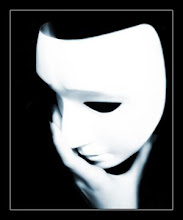What you don't know is far more relevant than what you do.
Being unexpected is what gives the Black Swan its impact.
'Experts' are no better at making predictions than anyone else – only at using technical jargon to maintain a plausible narrative.
Planning does not work, however allowing people to tinker and experiment and get rewarded for fortunate accidents does.
We learn specifically from a Black Swan event. They do not help us generate metarules.
Recursive events (events that cause other events, feedback loops) are key to creating Black Swans and maintaining complexity.
There are few rewards or recognition for acts of prevention.
Platonicity: what happens when we mistake the map for the territory, the abstract for the real, the neat concepts for the messy reality. Potentially useful, but limited and have random and unforeseen side effects when they do fail (Anerstic Delusion).
Sterile scepticism: talk is cheap, talk about language problems, philosophy and pseudo-scepticism that plays around with word definitions to eliminate the problems of randomness are even cheaper.
Stories replace stories. You need a better narrative to replace a bad or ineffective one.
The triplet of opacity: everyone thinks they know more than they do, they assess history retroactively (hindsight is 20/20) and the over evaluation of factual information and “authoritative” persons.
History jumps, it does not crawl or steadily progress.
People will cluster around the same framework of analyses, no matter how non-factual or temporary these frameworks are. This is a result of pathological categorization – wanting to put people in boxes to explain their behaviour.
Events fall into one of two domains: Extremistan or Mediocristan. Events in Mediocristan are scalable and basically predictable. Randomness is mild, it usually falls within the ranges of a Bell Curve. In Extremistan, events are non-scalable and much more extreme. Usually, Mediocristan events are those related to biology (for example, height) whereas those related to Extremistan are socially based (income, or book sales).
Inductive logic is for suckers: working from particulars to general rules is a recipe for disaster. Past indicators are not a guarantee of future performance.
The Black Swan is a problem relative to expectation and lack of knowledge. Those most certain of the future are the most likely to get tripped up and fall flat on their face.
Most people, given the choice, will choose to believe they live in Mediocristan, even when the evidence shows they do not.
Knowledge is domain specific: we have problems translating abstract classroom knowledge into real world applications. Equally, we can easily navigate a social situation which, when presented as a logical problem, totally confounds us.
Absence of evidence is not evidence of absence. No evidence of disease is not the same as there being no disease, and just because we do not know the function of something does not mean it has no function.
Corroborative facts cannot tell us what is true, only what is false. Negative empiricism is superior to naïve empiricism, where one can 'prove' anything with facts. A negative hypothesis is needed, falsification is needed.
Confirmation bias – we only look for evidence that supports our beliefs.
The narrative fallacy – we like to invent causes for events, even where none exist. We put explanations and an element of causality into a sequence of facts. Post hoc rationalization of events without meaning are common.
Narratives allow us to ignore the unusual.
Dopamine will lower your critical thinking abilities: you'll become susceptible to all sorts of fads, such as New Age mysticism, tarot cards or economic forecasts from a lack of it.
Information is costly to obtain – the more random the information the harder it is to store. Hence stories allow us to store more information, but with the downside of a loss of appreciation of the true randomness present.
Both art and science are symptomatic of our need to reduce complexity and inflict basic order on human existence.
People can and will hold incompatible and disparate beliefs based on the same factual evidence.
In the absence of other information, we will rely on stereotypes or even complete nonsense to explain events.
There are two types of Black Swan, the narrated and the truly unexpected. The narrated Black Swan is an overrated and hyped rare event, the true Black Swan is not talked about.
We are biologically constructed to seek small, yet repeatable and sustainable rewards.
The Black Swan is an asymmetry of consequences – either positive or negative.
You can either be a sucker, and run blindly into the danger you didn't know was there – or you can slowly bleed in the face of dangers you knew existed while hoping that it will lead to a pay-off that is worth it.
Silent evidence: often we are mislead by the sample in any experiment, because we do not take into account those who failed to be counted (the dead supplicants fallacy).
The survivor bias: we work from the fact someone survived to find the secret of their success, but in reality the fact that they survived is the secret of their success. People do not write about or promote knowledge of their failures.
The Ludic fallacy: life is not like a game. The sources of uncertainty are not well defined, the “rules of the game” are not totally apparent. If you treat life like a game, where you know all the rules, the unknown and unexpected will hit you like a truck.
Jun 5, 2008
Black Swan 101
I unashamedly stole these from Nassim Nicholas Taleb's wonderful book Black Swan, as a sort of condensed version of his ideas. Have a read through, and you'll probably see why I like him.
Labels:
Black Swan,
books,
philosophy,
randomness,
scepticism
Subscribe to:
Post Comments (Atom)
.jpg)

No comments:
Post a Comment